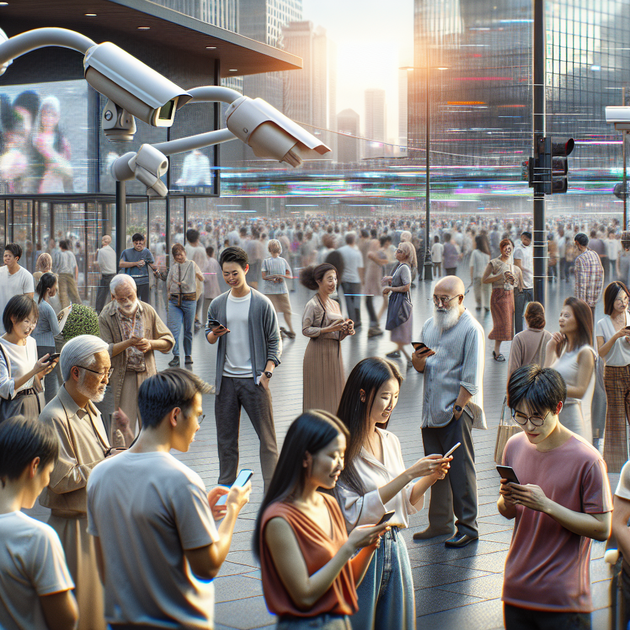Is it possible that technology could make everyone act better—just by making sure we’re always being watched? That was the bold Larry Ellison prediction years ago. And now his company is stepping right into the heart of social media. But are we actually on our best behavior when every post, comment, and moment might be recorded forever?
What Was the Famous Larry Ellison Prediction?
Larry Ellison, the billionaire co-founder of Oracle and one of tech’s most outspoken figures, once said that “citizens will be on their best behavior” if they know there’s a camera or microphone always watching. Back then it sounded more like science fiction than reality—a world where every move is potentially on record.
Fast forward to today. With smartphones in every hand and social media capturing everything from birthday parties to protests, it feels like we’ve arrived at that future. But here’s the twist: instead of just making us better citizens, this new world of constant surveillance has brought about some unexpected results.
Oracle’s Expanding Role in Social Media
Oracle isn’t just a back-end database giant anymore. The company has increasingly become involved in powering the infrastructure behind major social platforms—handling data storage, analytics, and even AI-driven moderation tools.
So what does that mean for all of us? Here are a few ways Oracle and similar tech companies shape our daily digital lives:
- Data management: Organizing and securing billions of photos and videos uploaded every day.
- Content moderation: Helping platforms detect hate speech or misinformation using artificial intelligence.
- User privacy: Setting policies for how much data is tracked—and who gets to see it.
- Advertising algorithms: Deciding which ads show up based on your online activity.
When you use social media now, there’s a good chance Oracle tech is working quietly behind the scenes.
Are We Really On Our Best Behavior?
Here’s where things get interesting. The original Larry Ellison prediction imagined a kind of digital utopia—one where people would treat each other with respect because they knew someone might be watching. But reality hasn’t played out so simply.
On one hand:
- Some people do think before posting online or acting in public because they know someone could record them.
- Laws around accountability (like body cameras for police) are changing expectations around transparency.
But on the other hand:
- Anonymity on certain apps can actually encourage bad behavior—think trolls or cyberbullying.
- The “always-on” feeling can create anxiety or self-censorship instead of genuine good citizenship.
- The lines between private and public life keep blurring as more is shared online.
A quick anecdote from recent years: A group of friends at a concert notices someone live-streaming nearby. Suddenly everyone straightens up and stops shouting over the music—at least until the camera turns away again. It’s a small example but shows how awareness of recording can nudge us to behave differently… at least temporarily.
The Double-Edged Sword Of Constant Surveillance
The impact of “being watched” isn’t all positive—or negative. For some communities, more cameras and data tracking mean more safety; for others, it can feel invasive or even oppressive.
What makes the difference? It often comes down to:
- Who controls the data?
- How transparent are companies about what gets recorded and why?
- Are there real consequences for bad behavior—or just viral shame?
With Oracle now playing such an important role in these systems through its technology partnerships with social networks and governments alike, these questions matter more than ever.
The Takeaway
Larry Ellison’s prediction wasn’t entirely wrong—but it was definitely incomplete. Technology can encourage good behavior sometimes. But it also creates new challenges around privacy and authenticity.
So as companies like Oracle help shape the digital world we live in (and record almost every moment), maybe the real question isn’t just whether we’re on our best behavior—but what kind of society we want all these cameras and databases to build.
Do you think knowing you’re being recorded makes you act differently—or does real change come from something deeper than just surveillance?

Leave a Reply